Current Graduate Students

Adam Barnhardt
Ph.D. Student (barnha60@msu.edu)
Links: website; ORCID; Researchgate; Google Scholar
My primary research foci lie in sociophonetics/phonology and language change. I am especially interested in applying concepts pertaining to sociocultural meaning to the examination of sound change through experimental and mixed-methods approaches. I am additionally invested in exploring the extent to which these concepts can be integrated within a framework of cultural evolution to offer holistic explanations of the actuation and spread of linguistic change.

Ben Airola
Ph.D. Student (airolabe@msu.edu)
Links: website
I’m a 2nd year in the Linguistics PhD program. I completed my B.A. at MSU in 2019 with majors in Japanese and Linguistics. My research interests include (articulatory) phonology, phonetics, and neurolinguistics, with a focus on the integration of theory with experimental methods. My current research involves phonological representation of geminates. I’m particularly interested in inter-disciplinary research in kinesiology and the cognitive sciences with the purpose of bridging the mind-body problem in phonology and neuroscience.
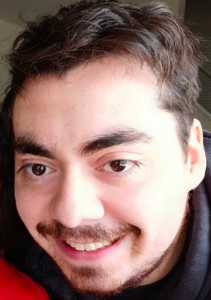
Chad Hall
Ph.D. Student (hallcha4@msu.edu)
Links: website; ORCID ID: 0000-0001-8338-7455; Google Scholar; Researchgate; Academia
My research focuses on sociolinguistics and phonetics/phonology. For my dissertation I am currently compiling the first open-access speech corpus of Dearborn Lebanese American English (DLAE) in order to increase exposure of this dialect. I am also running analysis on the data collected with a focus on the stopping of interdental fricatives by these speakers.

Cherilyn Wang
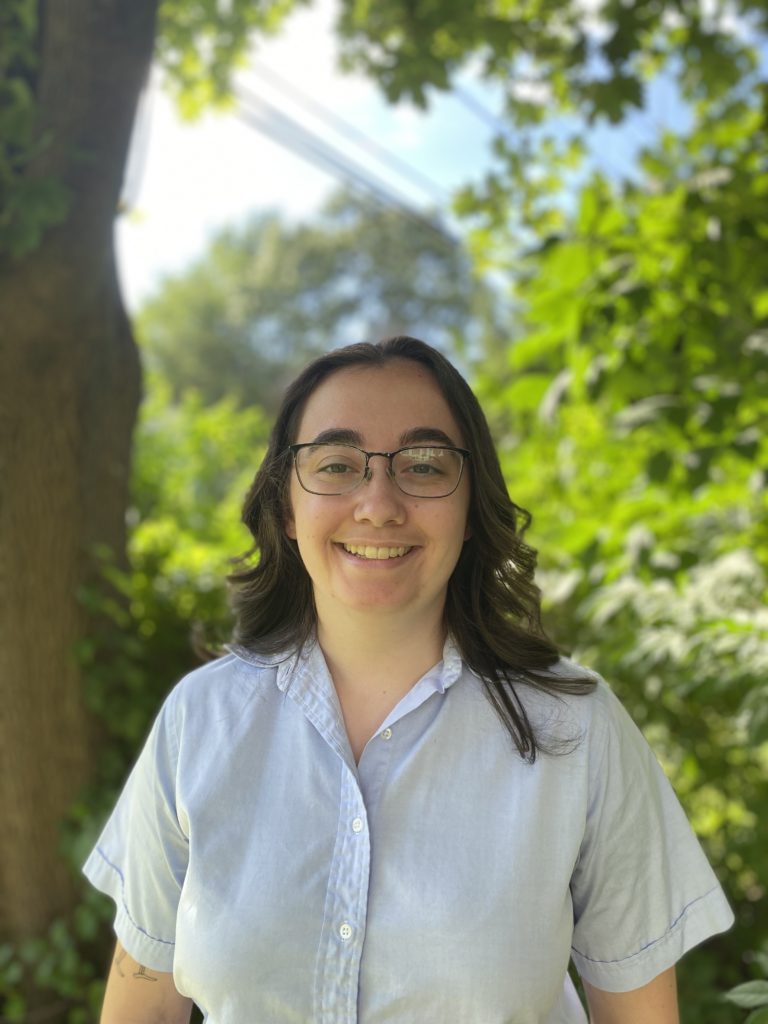
Emily Duggan

Jason Smith
Ph.D. Student (smit2922@msu.edu)
Links: website
Hello! I’m a doctoral candidate writing my dissertation on Mende (a Mande language of west Africa) syntax. My research program centers on comparative syntax, morphology, field linguistics. documentation, and Mande languages. If you would like to learn more about my research, see my website: https://sites.google.com/msu.edu/jasonsmithlinguistics.

Jiasheng Guo
Ph.D. Student (guojiash@msu.edu)
I am interested in semantics, pragmatics, and psycholinguistics. Most recently, I have been working on a project regarding cue-based memory retrieval.
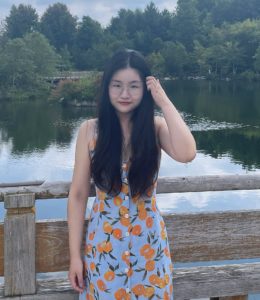
Jingying Xu
Ph.D. Student (xujing21@msu.edu)
My principal interest is in first language acquisition of syntax and semantics. My current research focuses on children’s telicity interpretation. My goal is to make a comparative investigation of English, Mandarin, Brazilian Portuguese and other languages to attain deeper insights into the cross-linguistic acquisition of telicity, which will shed further light on the development of the tense and aspect system. I also have a strong interest in the interdisciplinary research in cognitive science including both psycholinguistics and computational linguistics. My other ongoing and previous projects include the computational modeling of parameter setting, and the acquisition of the control structure and the count-mass issue in Mandarin.

John Ryan
Ph.D. Student (ryanjoh9@msu.edu)
My primary interest is in first language acquisition of syntax and semantics. I am also interested in psycho/neurolinguistics and the study of cognitive science, making use of interdisciplinary methods and insights to further understanding of language and the brain. In particular, my goal is to learn about the way brain development leads to the emergence of linguistic competency and potential neural correlates of language. Currently, I am working on the acquisition of tense and aspect in English speaking children with the Child Language Acquisition lab.
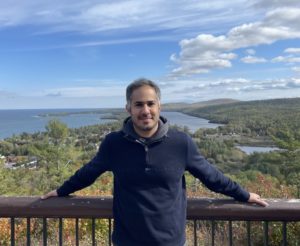
Komeil Ahari
Ph.D. Student (kolahiah@msu.edu)
My main interest is in theoretical syntax and word order, and my research focuses on Persian syntax and the interesting word order facts that surface in different phrasal domains. While Persian has generally been analyzed as a SOV language in the literature, the seemingly mixed linear ordering of elements in different phrases (as well as in the domain of Complex Verbs – those verbs containing a nonverbal and a light verbal unit) point to some inconsistencies in the traditional word order accounts. Given these inconsistencies, Persian begs for a unified analysis for deriving the different word orders, to which I’ve proposed that all phrases in Persian are head-initial and that the “mixed” orders are derived from a basic hierarchical Specifier-Head-Complement relationship. My research, therefore, bears on the cross-linguistic debate in the syntactic literature as to which of the two following theories best captures mixed headedness in languages: (1) whether complements are selected to the left or to the right of their heads is due to inherent properties of heads as lexical items, or (2) all heads uniformly select their complements to either the left or to the right, and heads and phrases subsequently move in the syntax.
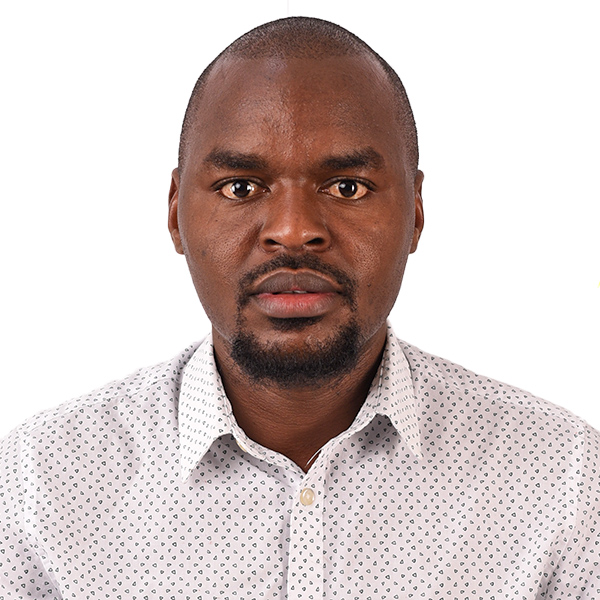
Mofart Ayiega
Ph.D. Student (ayiegamo@msu.edu)
Links: ORCID; Researchgate; Google Scholar
My research interests revolve around the Morphosyntax, semantics, and pragmatics of Bantu languages, Kiswahili and Ekegusii, and Cultural evolution. He holds a Bachelor of Education Arts from Kibabii University, Kenya and A Master of Arts In Kiswahili from Kenyatta University, Kenya. I am excited to further my professional objectives with the help of my prior experience and the training I will get from the Linguistics Program during my graduate studies.

Philip Pellino
Ph.D. Student (pellinop@msu.edu)
Broadly, my research addresses questions about how meaning arises in natural language (semantics/pragmatics) and how sentence structure contributes to the creation of that meaning (syntax). More specifically, I think about Negation phenomena, Information Structure and Discourse Modeling. I am particularly fascinated with what are sometimes referred to as “non-canonical” or “irregular” negations, and “negative inference,” one example being the negative information that can be contributed as a sub-part of a word’s overall meaning. To illustrate, in the sentence Phil almost bought a painting, part of the meaning is that Phil didn’t buy a painting. I am curious about how we generate these and other such inferences as well as the nature of different kinds of “not-at-issue” meaning (presuppositions, implicatures and “backgrounded” entailments). Regarding the application of this research, I am interested in Natural Language Processing (NLP)—a branch of Artificial Intelligence concerned with enabling computers to engage variously with human languages—and its responsible and ethical implementation into areas of Commerce and Medicine.
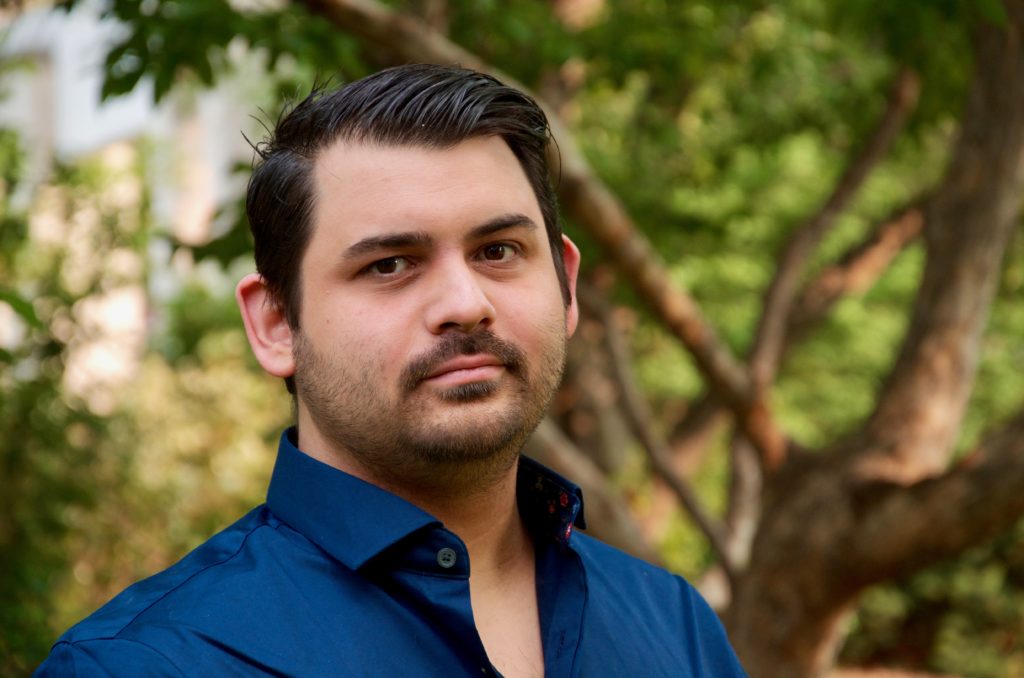
Teo Shannon (Dr. )
MA Student (shann150@msu.edu)
Links: website
Teo Shannon is a queer, chronically ill, Latinx poet and linguist interested in the meaning-making of verbal art, especially in conjunction with semiotics. He holds an MFA from Pacific University of Oregon, a PhD from the University of Nebraska-Lincoln, and is pursuing an MA in Linguistics at Michigan State University. He is a co-founder of Cotton Xenomorph, a digital literary magazine.

Yaxuan Wang
Ph.D. Student (wangyax3@msu.edu)
Links: website
My linguistic research focuses on semantics and pragmatics, with a special interest in quantifiers and presupposition and the interaction between the two. The analysis is mainly under the framework of dynamic semantics, with a comparison to trivalent logic semantics. The negative quantifier “none” is found to have extremely interesting properties, which leads to my further investigation into the negation phenomenon. I believe my research will provide insights into key properties of the human linguistic system. In addition to linguistics, I am also conducting research on Mongolian studies, including Mongolian language and translation, history, and international relationships.
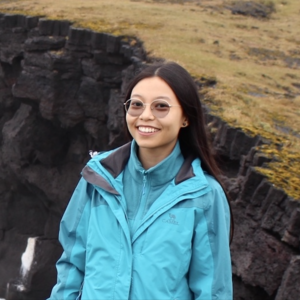
Yongqing Ye
Ph.D. Student (yeyongqi@msu.edu)
I am primarily interested in phonetics, speech perception and production. My research is driven by two mutually reinforcing goals: (1) understanding the structures and relationships in speech perception and production and (2) using the observations and insights drawn from the performance system to inform our understanding of phonological representations and sound change. I am currently working on describing the patterns of nasalization in different phonological contexts in Mainstream American English, and investigating what nasalization can tell us about perception, production and sound change.